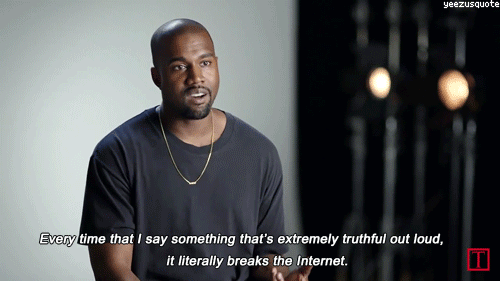 It’s estimated there are approximately 28,000 companies competing in the HR Technology space, and some mornings, opening my inbox feels a little like I’m being bombarded by every single one of them simultaneously.
It’s estimated there are approximately 28,000 companies competing in the HR Technology space, and some mornings, opening my inbox feels a little like I’m being bombarded by every single one of them simultaneously.
You know the feeling – those mornings when you seem to be taking a page from Pandora, unleashing all the evils of the world simply by opening your inbox.
Every single one of these manifold messages want me to do something, and most of the time, this consists of doing a demo or setting up a time to speak to some sales guy (as if). The calls to action, mostly, are nothing but noise, and the din can be deafening. Recruiters, you know what I’m talking about.
Of course, then you go to a search engine or social network, and you’re served up display ads from the exact same vendors you were shirking touting the exact same call to action you ignored in the first place.
It’s been said that “the best minds of our generation are being wasted thinking of new and different ways to get people to click on links,” and there’s some truth to that. Thing is, we go into our inboxes and open our web browsers expecting to ignore many of the marketing messages that come our way.
The fact is most recruitment marketing messages are just not all that good.
It doesn’t have to be this way, by the way.
Can’t Tell Me Nothing: A Recruitment Marketing Call to Action.

The thing is, recruitment marketing e-mails don’t have to suck. But if you want your recruitment marketing call to action to get heard, you’ve got to stop thinking like a recruiter or a marketer (counterintuitive, I know) and step into the shoes of the intended recipients of your recruitment marketing activities: the top talent you’re looking to hire.
Chances are, they’re also suffering from a pretty severe case of inbox overload, too, and suffer the same constraints of too many messages and too little time that adversely impact the rest of us every time we open our inbox.
If you’re trying to reach them with a recruitment marketing message, it not only has to be clear and compelling, but it also to be as good (or better, TBH) as any consumer marketing campaign or collateral out there.
After all, they’re displayed side by side with content and collateral that have nothing to do with jobs (and, let’s face it, are often infinitely more interesting). This can seem like a pretty daunting challenge. But the fact is, the reason we’re so bombarded with e-mails all the time is because, well, sometimes they work as intended.
So, what’s so special about those exceedingly rare e-mails that successfully convert cold prospects into warm leads?
Take a moment and think about the messages and outreach that you look forward to opening when it arrives in your inbox, and the company or provider responsible for creating these anomalies of actually compelling content.
Why do you listen to them and how did you find them in the first place?
In most nearly every imaginable case, it’s because you they add value, and in doing so, have instilled at least the tiniest bit of trust in the fact that they know their stuff.
They are writing about topics you care about, always teaching you something new and demonstrate subject matter expertise time and time again. They’ve become a resource to you and have had the ability cut through the noise because of it.
Now, imagine how candidates, passive or active, must feel when looking for their next opportunity online. It looks very similar. They keep seeing the same crappy job descriptions or career related copy over and over.
Whether that’s the AdWords served up in the results of the 85% of job searches that start with a search engine, or an automated job alert feed of irrelevant results sent straight to their inbox, candidates won’t respond to any call to action if it’s not compelling enough to do so in the first place.
And the few that do click through – and go through the gauntlet of your draconian application process – probably never heard back from a recruiter, but likely still get served the same targeted ads and segmented e-mails that just pour salt on the wound of a crappy candidate experience.
Through The Wire: How To Add Value Through Recruitment Marketing.

No wonder a recent survey found 19% of job seekers said they’d rather wait at the DMV than apply to a job. After all, candidates face the same deluge of marketing messages in their inboxes every single day, and do what they’ve been trained to do as consumers – ignore all but the best and most relevant of results.
And chances are, your recruitment marketing messaging is falling on deaf ears, contributing to the noise instead of cutting through it.
The goal of all these recruiting efforts, presumably, is to build and accelerate a pipeline of qualified candidates and nurture them from passive leads to actual applicants to ultimately new hires.
But no matter how big your database might be, no matter how many followers or friends you’ve acquired on social media, no matter how many candidates have opted into employer related e-mails, if you’re not adding value to the candidate through their journey, it doesn’t matter what medium you are using because your message sucks.
If you want to get results from any of these marketing initiatives, you’ve got to reciprocate with more than a periodic e-mail that’s nothing more than a list of job titles or automated tweets sent directly from your ATS to your careers account. You need to provide a message that matters and adds value to the candidates you are trying to attract.
Taller, Better, Faster, Stronger: Recruitment Marketing Has Evolved. Have Your Processes?

I’ve got a news flash for you – the old school online recruiting that’s becoming omnipotent is creating a ton of candidate fatigue, resulting in diminishing returns and recruiting related ROI.
If the message you’re sending can’t make a candidate care enough to click, then you’re wasting everyone’s time – and likely burning a ton of brand-related good will in the process, particularly passive candidates, which surveys show is about 85% of today’s workforce.
No matter how active a job seeker’s level of interest might be, the bottom line is that there are some proven tactics to make sure that those candidates are being attracted, instead of repelled, by your online recruiting and employer branding initiatives.
These tested, targeted techniques guarantee when choosing what to click, the candidates you’d choose for jobs choose to click through – and apply – to yours. This isn’t a tough concept, but let’s review this again. Marketing works when content adds value – it fails when all you’ve got is another ask. You might as well be a Nigerian prince for the kind of results taking without giving is going to generate. That’s where recruitment marketing comes in.
Recruiters, meet recruitment marketing Y2K.
Put simply, “recruitment marketing” is creating compelling online content for the purposes of attracting qualified leads to a product or service. If you’ve ever filled out a form on the web, downloaded a white paper or registered for a webinar – you’ve experienced recruitment marketing in action.
Same goes for if you’ve applied for a job or subscribed to a talent network, community or simply a job alert list. Or read a blog post like this one, for that matter. If you’re reading this, well, you’ve got proof that marketing works.
Everything I Am: 3 Reasons Why Every Talent Pro Should Care About Recruitment Marketing.

If you invest in recruitment marketing instead of blindly serving up irrelevant and impersonal crappy career copy, you’ll soon see the recruiting ROI.
Here are 3 reasons marketing works for recruiting – and why every organization should at least be considering investing in this critical core competency to stay a step ahead of the competition – and top of mind with top talent, too.
1. The Consumer/Candidate Connection:
The fact is, the consumer and candidate experience are almost completely congruent, with a slightly differentiated call to action. That’s why treating candidates as consumers of career related content is so important, strategically speaking.
Making sure your message gets heard means standing out from the competition – and the noise – which means adding value instead of simply advertising open jobs. Top talent might not even know they’re looking for jobs yet, which is why it’s up to your content to convince them.
Never hard sell – there’s no bigger turn off than looking desperate, which is probably what how your recruitment marketing is coming across in a market where you need them worse than they need you.
2. Process Alignment:
Recruitment marketing’s process almost perfectly aligns with the hiring process pretty much every recruiting organization out there already has in place.
From sourcing to candidate development to extending an offer, recruitment marketing augments and extends your existing recruiting related processes and initiatives rather than replacing or replicating them. This means that recruitment marketing is easy to implement and tie into every stage of the hiring cycle – and continuously drive meaningful results by continuously delivering meaningful content specifically targeted to their stage in the process.
Of course, in recruiting, the process doesn’t stop with an accepted offer, and recruitment marketing extends to increased referrals, employee engagement, improved onboarding and ultimately, better retention (commonly called ‘renewals’ in the marketing world).
3. Work Smarter, Not Harder:
It’s becoming increasingly important for recruiters to adopt analytics, and inbound marketing’s emphasis on constant measurement and optimization can provide employers with meaningful metrics on the data that matters most in terms of candidate attraction and conversion.
From improving cost per hire and time to fill by improving incoming applicant flow and response rates to recruitment marketing initiatives that you’ve already got in place, inbound marketing turns the data you’re already generating into the insights required for actionable analytics. The cool thing is, not only does inbound marketing work, but it very explicitly has the numbers to back it up, too.
I know a lot of you out there are thinking this is just another BS buzzword or another trending topic that doesn’t translate to the trenches, and I feel you.
But you’ve got to trust me when I tell you that recruitment marketing matters – and it’s something that every recruiter needs to know if they want to stay top of mind in the minds of top talent.
To learn more about how to make nurture part of the recruiting nature at your company, click here to register for our upcoming webinar, Recruitment Marketing 2K17, presented by our friends Symphony Talent.
Editor’s Note: This post was sponsored by Symphony Talent, and RecruitingDaily received compensation for publishing this post. Now that we’ve got that disclaimer out of the way, we’d like to reiterate that tomorrow’s webinar is going to be awesome (and worth your time). If you’re in sourcing or recruiting, this is one hour you definitely can’t afford to miss.
Added bonus: the presenter is Bill Boorman, and dude knows his stuff when it comes to recruitment marketing (and has a killer British accent to boot). Register now and get your recruitment marketing learn on tomorrow, June 20, at 2 PM ET.
And we’re not just saying that because Symphony Talent paid us for this post to promote it. Promise.
Authors
Matt Charney
Matt serves as Chief Content Officer and Global Thought Leadership Head for Allegis Global Solutions and is a partner for RecruitingDaily the industry leading online publication for Recruiting and HR Tech. With a unique background that includes HR, blogging and social media, Matt Charney is a key influencer in recruiting and a self-described “kick-butt marketing and communications professional.”
Recruit Smarter
Weekly news and industry insights delivered straight to your inbox.





